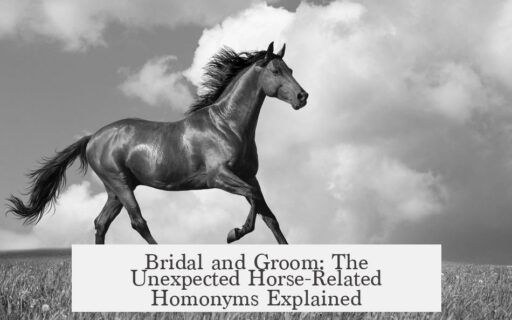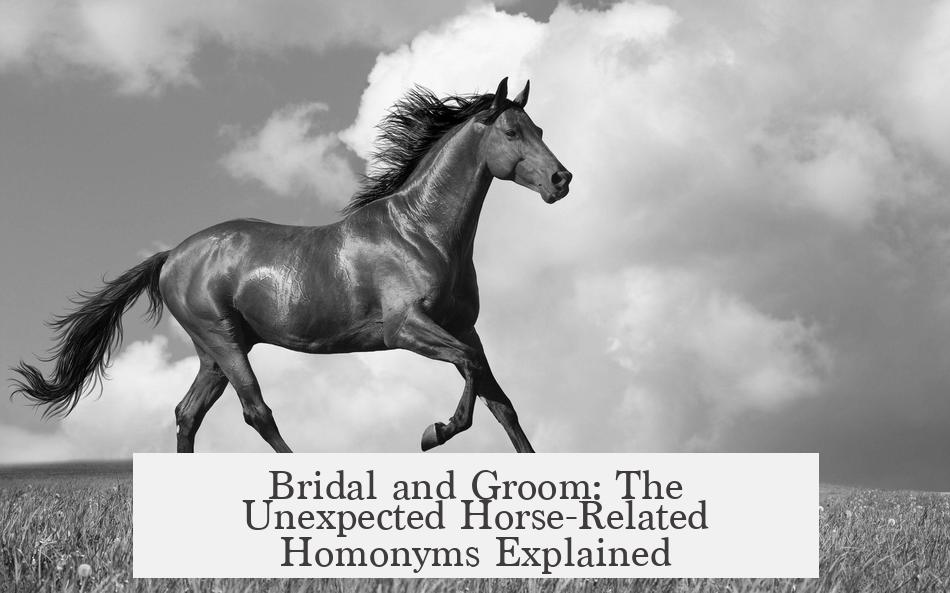It is a coincidence that “bridal” and “groom” have horse-related homonyms with different origins. The word “bridal,” connected to a bride, and “bridle,” a horse’s reins, sound alike but come from completely separate roots. Likewise, “groom,” referring to a bride’s partner, and “groom,” the act of caring for horses, stem from different sources.
The adjective “bridal” derives from the Old English word bryd, meaning “bride” or “woman to be wed.” It has Proto-Germanic origins, bruthiz, with no link to equestrian terms. On the other hand, “bridle,” the equipment used to control a horse, comes from Old English bridel. This word likely connects to the Proto-Germanic verb bregdanan, meaning “to suddenly jerk.” Hence, the similarity between “bridal” and “bridle” is a false etymology—a coincidence of sound but not of meaning or origin.
The noun “groom” references the bride’s male counterpart. It shortens “bridegroom,” from Old English brydguma, meaning “bride-man.” This traces back to Proto-Germanic gumon-, meaning “human,” and ultimately to the Proto-Indo-European root *dhghem-* (“earth”). Meanwhile, the verb “to groom,” meaning to tend horses, surfaced several centuries later, around the 17th century. It originates from a noun denoting a stable servant or boy—and likely descends from Old French grommet, meaning “servant boy.” Some propose unclear Old English roots, but none connects to “bridegroom.”
This means the two senses of “groom” have separate etymologies. The use of “groom” as a person caring for horses arose independently from “groom” linked to marriage.
| Word | Meaning | Origin | Related Terms |
|---|---|---|---|
| Bridal | Relating to a bride | Old English bryd (bride), Proto-Germanic bruthiz | None from horse terms |
| Bridle | Horse’s harness | Old English bridel, Proto-Germanic bregdanan (“to suddenly jerk”) | Horse tack |
| Groom (noun) | Bride’s male partner | Old English brydguma, Proto-Germanic gumon- | Bridogroom |
| Groom (verb) | To tend horses | 17th century, likely from Old French grommet (“servant boy”) | Stable servant |
The resemblance between “bridal” and “bridle,” and between “groom” the person and “groom” the horse-care verb, results from the evolution of language creating similar-sounding words with unrelated roots. This situation often causes confusion but reflects typical linguistic coincidence.
- “Bridal” and “bridle” have similar sounds but unrelated origins.
- “Groom” (bridegroom) and “groom” (to care for horses) stem from distinct roots.
- The horse-related homonyms arise from coincidental phonetic development, not shared etymology.
- Understanding word origins prevents false assumptions about related meanings.




